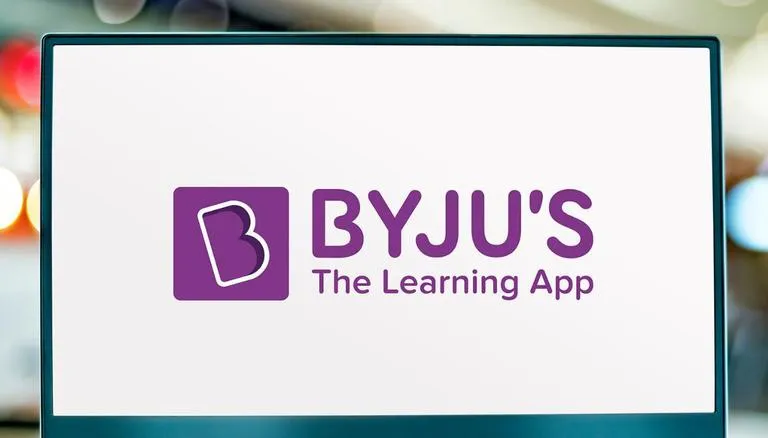BYJU’S Takes On Lender in New York Court: Lawsuit Filed
The online education giant, BYJU’S, is not one to back down from a challenge, especially when it comes to protecting their business interests. In its latest move, BYJU’S has filed a lawsuit against a lender in New York court. This legal action is in response to what BYJU’S claims is the lender’s attempt to take advantage of a financing agreement and exploit the company’s financial position. Let’s dive into the details of this legal battle and see what it could mean for BYJU’S and its future.
1.Background on BYJU’S and its recent growth
BYJU’S is a leading edtech company in India, known for its innovative approach to education and its use of technology to enhance learning. Founded in 2011, the company has grown rapidly in recent years, expanding its reach to over 80 million users across the country.
The company has achieved this success through a range of innovative offerings, including its flagship product, the BYJU’S learning app, which offers interactive learning experiences in a variety of subjects, from math and science to history and geography. BYJU’S has also established a strong reputation for quality and innovation, earning numerous awards and accolades in India and abroad.
With its recent growth and success, BYJU’S has become a key player in the edtech industry, attracting the attention of investors and lenders alike. The company has raised significant funding from top investors, including Facebook founder Mark Zuckerberg’s Chan Zuckerberg Initiative, and has also secured financing from leading lenders such as White Oak Global Advisors.
Despite these successes, however, BYJU’S recent growth has also brought new challenges. As the company seeks to expand its offerings and reach new markets, it must navigate a complex and rapidly-evolving landscape of regulatory and legal issues, as well as intense competition from other edtech providers.
These challenges have come to a head in recent months, as BYJU’S has found itself embroiled in a legal dispute with one of its key lenders, White Oak Global Advisors. The outcome of this dispute could have significant implications for BYJU’S future financing and expansion plans, and is likely to be closely watched by investors and industry analysts alike.
2.The loan agreement with White Oak
As BYJU’S, the Indian edtech giant, continues to experience rapid growth, the company has faced a range of financial challenges. In March 2021, BYJU’S secured a $460 million loan from New York-based lender White Oak, as part of a larger financing round that aimed to raise $1.5 billion. However, the loan agreement with White Oak has now become the subject of a legal dispute.
According to the lawsuit filed by BYJU’S in New York court, White Oak breached its contract by not disbursing the full loan amount as promised. Instead, White Oak allegedly disbursed only $300 million, citing concerns over the “overall investment climate”. BYJU’S claims that this partial disbursement violated the loan agreement and hindered the company’s ability to pursue its growth plans.
The loan agreement between BYJU’S and White Oak included a number of other clauses, including one that required BYJU’S to make payments on a fixed schedule and another that stipulated a prepayment penalty for early repayment of the loan. It is unclear at this stage whether White Oak violated any of these clauses.
Regardless, the lawsuit is a significant challenge for BYJU’S, which has been seeking funding to support its ongoing expansion plans. The company’s valuation has soared in recent years, with a valuation of $16.5 billion as of April 2021. However, BYJU’S has also been criticised for its acquisition strategy and aggressive marketing tactics.
It remains to be seen how the legal dispute with White Oak will impact BYJU’S future financing plans, but it could potentially limit the company’s ability to raise capital in the short term. The case highlights the importance of carefully assessing the terms of loan agreements and the potential risks associated with relying on external funding.
3.Alleged breach of contract by White Oak
The loan agreement between BYJU’S and White Oak was a critical aspect of BYJU’S recent growth. According to reports, White Oak provided a $200 million loan to BYJU’S, which the company intended to use for its expansion plans. However, recent developments suggest that White Oak may have breached the terms of the loan agreement, prompting BYJU’S to file a lawsuit in a New York court.
According to the lawsuit filed by BYJU’S, White Oak failed to provide the promised amount of funds within the agreed timeline, which severely impacted BYJU’S plans for growth. The lawsuit also alleges that White Oak deliberately hindered BYJU’S growth by providing the company with faulty information and by not providing enough funds as agreed upon. BYJU’S is seeking damages of $1.5 million and a jury trial to determine the outcome of the case.
The implications of this lawsuit could be far-reaching for BYJU’S, as the company continues to pursue its ambitious expansion plans. The lawsuit may also impact the future financing and funding options available to BYJU’S, as other potential lenders may be cautious in providing funds to the company.
Overall, this lawsuit represents a significant development for BYJU’S, as it seeks to continue its impressive growth trajectory. Only time will tell what the outcome of the lawsuit will be, and what impact it may have on the future of BYJU’S.
4.Lawsuit filed in New York court
On August 27, 2021, BYJU’S, the Indian education technology company, filed a lawsuit against White Oak Commercial Finance, LLC, in the Supreme Court of the State of New York. The lawsuit alleges that White Oak has breached its contractual obligations by refusing to disburse funds to BYJU’S, which were part of a loan agreement signed between the two companies in November 2020.
According to the complaint, White Oak has violated the loan agreement by claiming that BYJU’S has not met certain performance targets. BYJU’S denies these claims and alleges that White Oak is using this as an excuse to delay the disbursement of funds. The lawsuit seeks damages in excess of $150 million, which includes compensatory damages, interest, and legal fees.
BYJU’S also claims that White Oak has made disparaging remarks about the company to third parties, damaging BYJU’S reputation and hindering its ability to secure future financing. This, along with the delay in funding, has reportedly caused BYJU’S to suffer significant harm.
Possible implications for BYJU’S future financing and expansion plans:
The lawsuit is significant for BYJU’S, as it may have an impact on the company’s future financing and expansion plans. BYJU’S has been on a rapid growth trajectory, expanding its services beyond India to countries like the United States, UK, and Australia. The company has raised over $2.3 billion in funding to date, with investors including the likes of Tiger Global Management, Sequoia Capital, and the Chan Zuckerberg Initiative.
However, the delay in funding from White Oak and the ongoing legal battle may impact BYJU’S ability to secure future financing, as potential investors may be wary of the company’s legal troubles. Additionally, the negative comments allegedly made by White Oak may hurt BYJU’S reputation, making it harder for the company to expand in new markets.
It remains to be seen how this lawsuit will be resolved, and what the implications will be for both BYJU’S and White Oak. As of now, BYJU’S continues to pursue legal action, while also focusing on its growth plans and serving the millions of students who rely on its digital learning platform.
5.Possible implications for BYJU’S future financing and expansion plans.
The lawsuit against White Oak could potentially have an impact on BYJU’S ability to secure future financing for its ambitious expansion plans. The education technology giant has been on a rapid growth trajectory in recent years, with its valuation reaching over $16 billion as of April 2021. This growth has been largely fueled by external funding, with BYJU’S having raised more than $2.2 billion in investment since its inception in 2011.
However, if the lawsuit against White Oak results in unfavorable rulings, it could make it more difficult for BYJU’S to attract future lenders. This could lead to increased scrutiny from potential investors and may result in the company having to agree to less favorable terms in order to secure funding.
In addition to impacting BYJU’S future financing prospects, the lawsuit could also create uncertainty for the company’s expansion plans. BYJU’S has made it clear that it intends to continue its expansion both domestically and internationally, with a particular focus on markets like the US and the UK. If the lawsuit creates a prolonged legal battle, it could result in a diversion of resources that might otherwise have been directed towards expansion efforts.
Despite these potential challenges, however, it is important to note that BYJU’S has a strong track record of success and a reputation as one of the most innovative companies in the education technology space. While the lawsuit against White Oak may create some temporary obstacles, it is unlikely to slow BYJU’S overall growth trajectory over the long term.
conclusion
BYJU’S impressive growth trajectory and popularity have certainly caught the attention of investors and lenders alike. However, as this recent lawsuit against White Oak demonstrates, securing funding can come with its own set of challenges. It remains to be seen how this legal dispute will be resolved, but it highlights the importance of carefully vetting potential financing partners and thoroughly reviewing loan agreements before signing. While the outcome of this lawsuit will undoubtedly have significant implications for BYJU’S future financing and expansion plans, the company’s strong track record of success and continued innovation suggest that it will be ableavigate any obstacles that come its way.
Also Read: From Research Tool to Legal Liability: Investigating the Misuse of ChatGPT by US Lawyers







